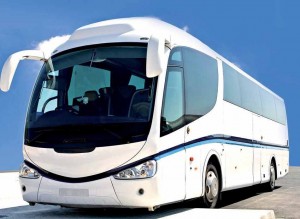 Among all the modes of transportation in India, bus transport has proved most useful and economical for the common man since pre-Independence days. All sections of people have had the chance to utilise the facility which is easily accessible, cost-effective and user-friendly. Unfortunately, the bus transport sector is now functioning on a low key as a result of the steep rise in fuel, spares and tyre prices.
Among all the modes of transportation in India, bus transport has proved most useful and economical for the common man since pre-Independence days. All sections of people have had the chance to utilise the facility which is easily accessible, cost-effective and user-friendly. Unfortunately, the bus transport sector is now functioning on a low key as a result of the steep rise in fuel, spares and tyre prices.
According to Dr. D. Vijayagovindarajan, President, Vellore District Bus Owners Association, while there has been introduction of new technology vehicles like air-conditioned, high-speed, sleeper and luxury coaches which are made use of by the higher class who can afford them, the common man who is dependent on public bus transport is really left in the lurch. He really bears the brunt of the steep fare hikes announced periodically. It may be noted that the Government proposes to raise diesel prices by Rs. 10 a litre, further adding fuel to the fire.
Need of the hour
There is also need for a positive approach towards improving the technology that would benefit both the Government and the common man. This would hold good both for Indian and foreign bus manufacturers who serve the vast rural population of the country. For instance, one had to travel in an old model car giving 10 kmpl. Here a stretch of 300 km would consume 30 litres. But new technology engines with mileage of 20 kmpl would consume half the normal quantity. This would mean less dependence on crude import from foreign countries, if the common rail direct ignition (CRDI) is provided in the entire public transport, which means less fuel consumption. This benefits both the Government and the vehicle user. The need of the hour is introduction of efficient buses on a regular basis.
Dr. Vijayagovindarajan further observes that vehicles used by both educational institutions and companies must be compulsorily operated on alternate fuel technology – batteryoperated, solar power, hybrid, minihybrid, etc., – to ensure substantial cut in fuel consumption.
Further, adequate attention has to be paid to safety on the highways. In fact, there are more accidents on Indian roads than anywhere else. Technology like anti-lock braking (ABS), speed retarder, etc., must be adopted by all bus manufacturers to avoid road accidents and save precious lives. At the same time, vehicles also don’t suffer damage.
He feels that being the cheapest mode of transport, the Government must consider the plight of the common man while fixing fuel prices. Bus manufacturers must also be encouraged to develop cheaper, fuel efficient, user-friendly sophisticated foreign buses at affordable prices.